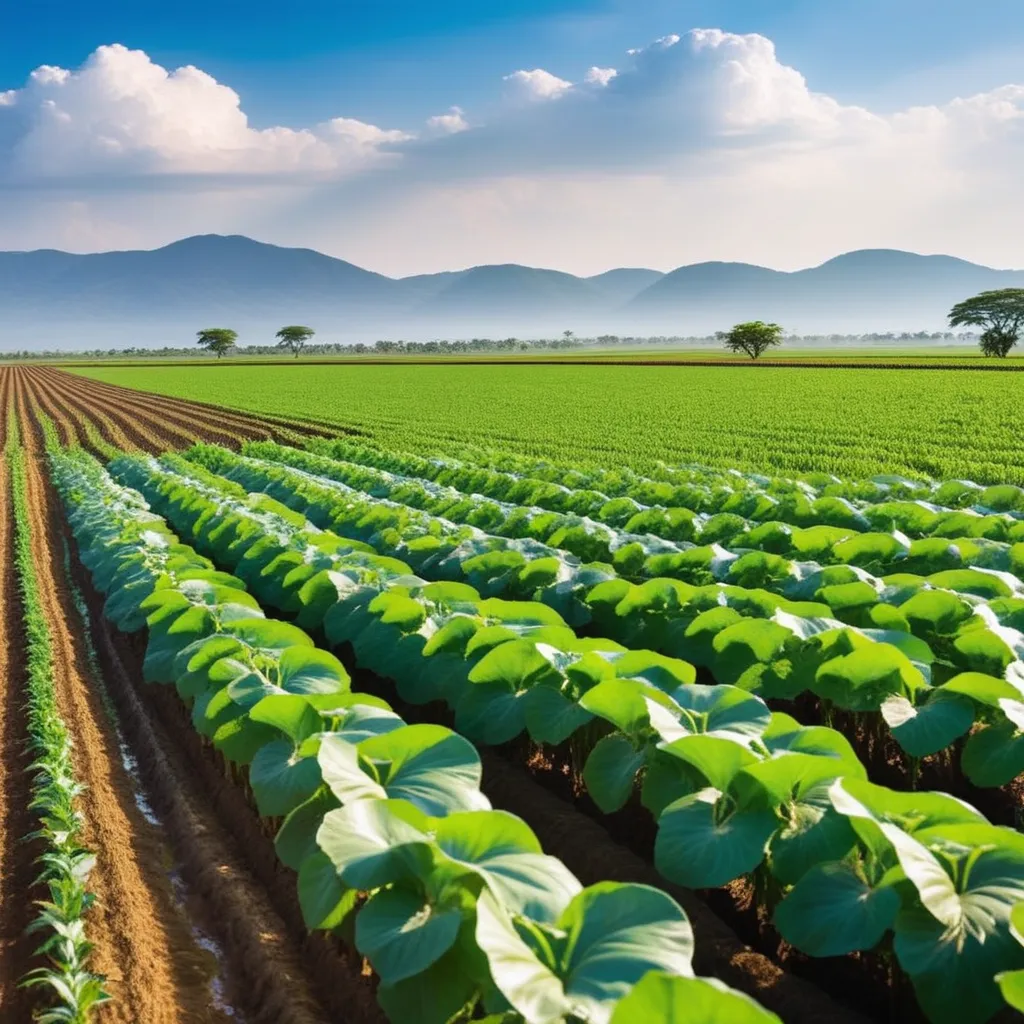The Impact of Climate Change on Agriculture
As the sun rises over the fields, farmers across the world embark on a timeless journey—the cultivation of food to feed our growing population. But this age-old endeavor is facing an unprecedented challenge: the impact of climate change on agriculture. In this article, we'll explore the pressing issues and share personal insights into how this global phenomenon is reshaping our food systems.

Changing Weather Patterns
Unpredictable Seasons
Climate change has brought about erratic weather patterns. Extended droughts, unseasonal rains, and unpredictable temperature fluctuations have made it challenging for farmers to plan their planting and harvesting cycles. I recall a conversation with a local farmer who lamented the shifting seasons and how it affected his crops.
Personal Insight: Hearing his concerns made me realize that climate change isn't a distant threat; it's a daily reality for those who depend on the land.
Crop Yield Variability
Rollercoaster Harvests
Crop yield variability has become a norm rather than an exception. Rising temperatures and changing precipitation patterns can lead to bumper harvests one year and crop failures the next. It's like a rollercoaster ride for farmers' livelihoods.
Personal Insight: I read about a family-owned farm that faced bankruptcy due to consecutive years of poor harvests caused by extreme weather events. It highlighted the economic toll of climate change.
Pests and Diseases
A Battle on Two Fronts
Warmer temperatures provide a conducive environment for pests and diseases to thrive. Farmers are now dealing with invasive species they've never encountered before. I recall visiting an organic farm where the farmer explained how he had to adapt his pest control strategies due to changing pest behavior.
Personal Insight: The farmer's dedication to sustainable farming methods in the face of increasing pest challenges was truly inspiring.
Water Scarcity
Thirsty Crops
Water scarcity is a growing concern in agriculture. As temperatures rise, crops require more water to survive, putting a strain on already depleted water resources. Farmers are implementing water-saving techniques like drip irrigation to make every drop count.
Personal Insight: I witnessed the transformation of arid land into a thriving orchard through the efficient use of drip irrigation, underscoring the importance of water management.
Adaptation and Resilience
Farmers as Innovators
Farmers are resilient and resourceful. Many are adopting climate-smart agricultural practices such as crop diversification, agroforestry, and soil conservation to mitigate the impacts of climate change. I met a farmer who had transformed his traditional farm into an agroecological haven, showcasing how adaptation can lead to sustainability.
Personal Insight: Visiting farms like his gave me hope that innovation and adaptation can lead to a more sustainable future.
Policy and International Cooperation
A Global Challenge
Addressing the impact of climate change on agriculture requires international cooperation and policy changes. Agreements like the Paris Agreement aim to reduce greenhouse gas emissions and limit global warming. I followed these developments closely, understanding that global efforts are crucial in tackling this issue.
Personal Insight: It's heartening to see countries coming together to combat climate change, knowing that the effects of their actions will be felt in the fields and on our plates.
Consumer Choices
Supporting Sustainable Agriculture
Consumers also play a vital role in shaping the future of agriculture. Choosing sustainably grown and locally sourced products can reduce the carbon footprint of our food and support farmers who are adopting climate-resilient practices.
Personal Insight: I made a conscious effort to support local farmers and buy products that align with my values of sustainability.
A Call to Action
In conclusion, the impact of climate change on agriculture is profound and far-reaching. It affects not only the livelihoods of farmers but also our food security and the health of our planet. It's a challenge that demands collective action, from individual consumer choices to global policy decisions.
As we witness the changing landscapes of our agricultural communities, let us remember that the future of food is inextricably linked to the fate of our environment. By working together, we can cultivate a resilient and sustainable food system that nourishes us and the generations to come.

No comments:
Post a Comment